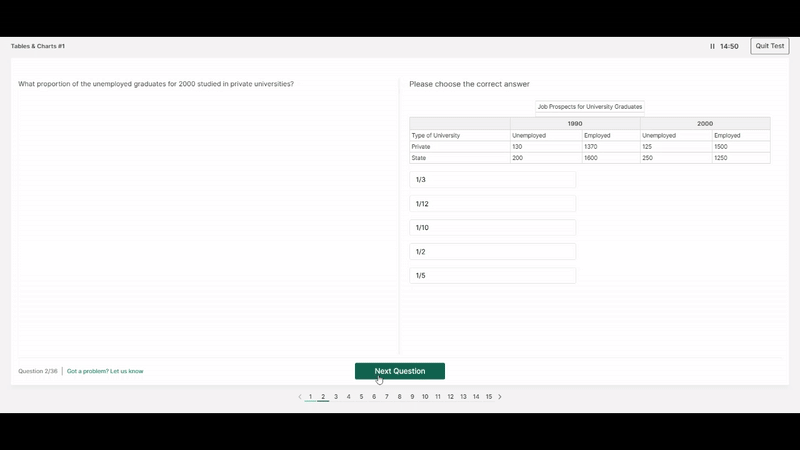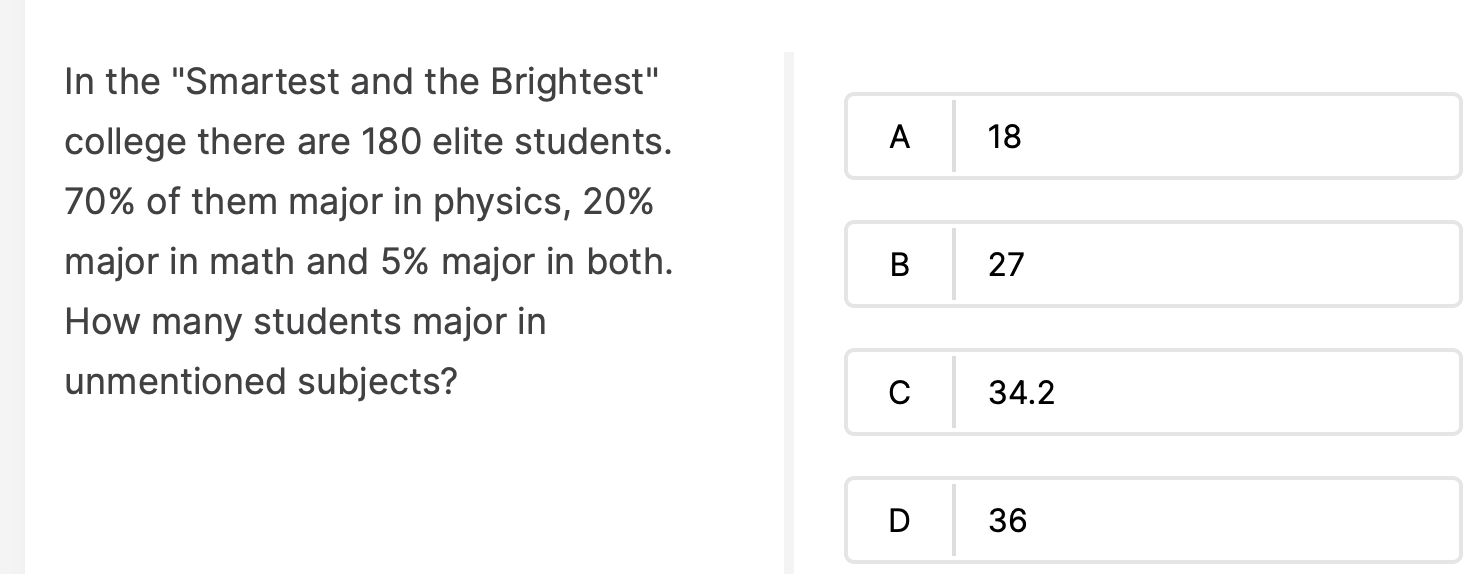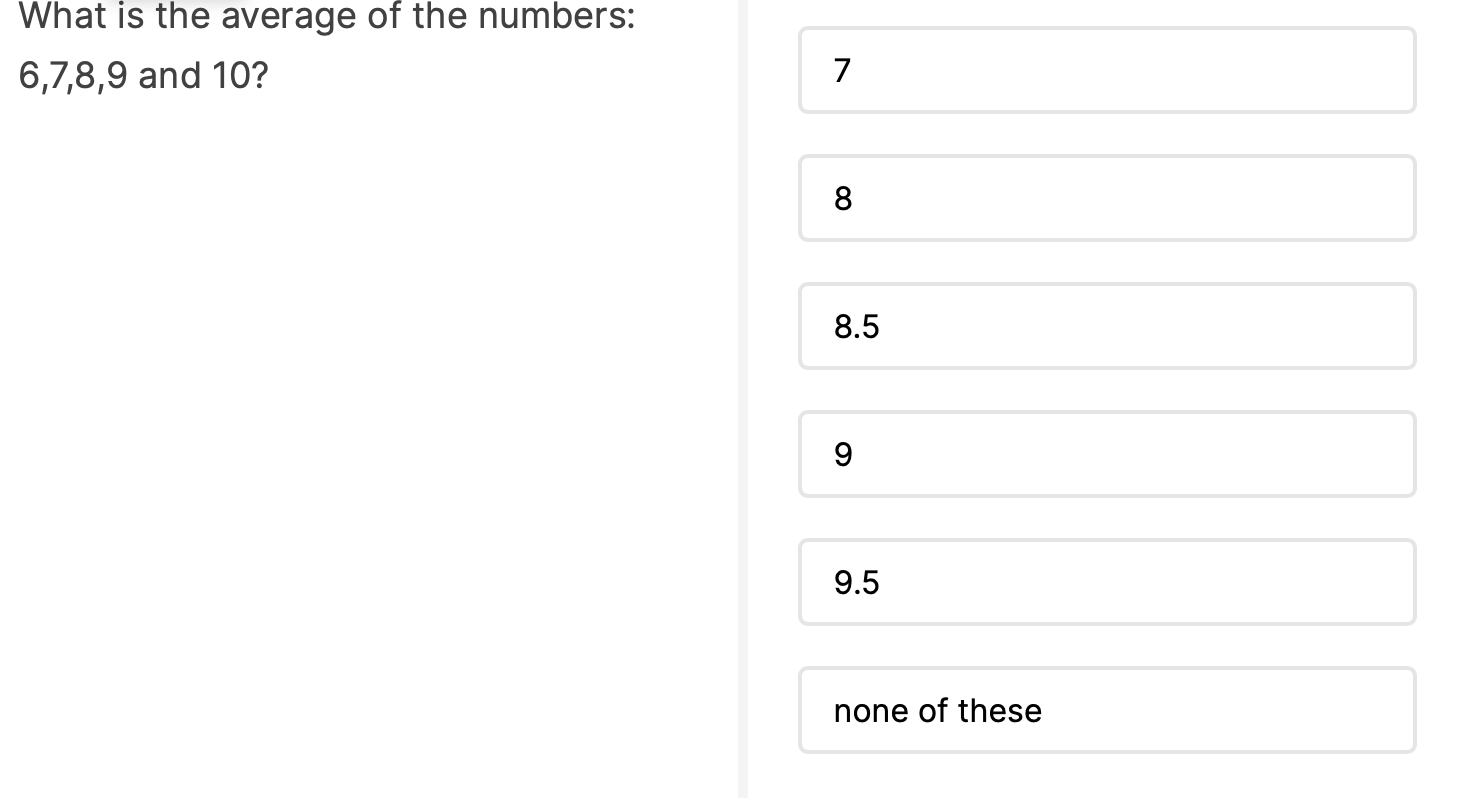Master the Non-Calculator Numerical Reasoning Test with Confidence
Get full preparation for tests that don’t allow a calculator—fast-paced, mental arithmetic, logic, and interpretation skills all matter.
The Non-Calculator Numerical PrepPack includes:
-
43 Full-length practice tests covering over 20 types of numerical reasoning questions - including word problems, number series, data interpretation, basic numeracy and more.
-
Targeted drills to build speed and accuracy.
-
Step-by-step study guides, including clear explanations and proven problem-solving strategies.
-
Video tutorials to reinforce core math concepts and shortcuts.
-
Unlimited retakes during your subscription – build speed, accuracy, and confidence.

- 12 word problems practice tests
- 12 numerical series practice tests
- 9 basic numeracy skills practice tests
- 5 tables & charts practice tests
- 4 drills
- Explanations, solving tips and score reports
- 6 numerical drills
- 10 video tutorials & 6 study guides
Practise Questions
Who We Are
At JobTestPrep, we’ve helped thousands of candidates pass competitive hiring assessments, including those at McKinsey and other top consulting firms. Our materials are designed by psychometric experts and updated based on real candidate feedback to reflect the latest game formats.
Founded in 1992 by David Meshulam, JobTestPrep has become a trusted leader in online test preparation. With 30+ years of experience, 220+ courses, and over a million success stories, we combine expert-crafted PrepPacks with AI tools like our CV Analyzer and Interview Prep platform to help candidates worldwide prepare with confidence.
FAQ's
You will have instant access to your PrepPack, which includes all your practice tests. You can start practicing immediately, learning from detailed explanations and guides, while tracking your performance with accurate, tailored questions to help you understand the correct approach to solving your assessment.
After your purchase, you will receive two emails. The first will contain your payment receipt, and the second will include a login link along with information about our general terms, conditions, and refund policy. To access your PrepPack, simply log in and reset your password.
No, there is no limit. Your progress is saved in your account, allowing you to revisit previous attempts. Our performance tracker helps you focus on the test sections that require more attention.
Yes, you can extend your practice period. Simply contact our customer success team via c.serv@jobtestprep.com.






